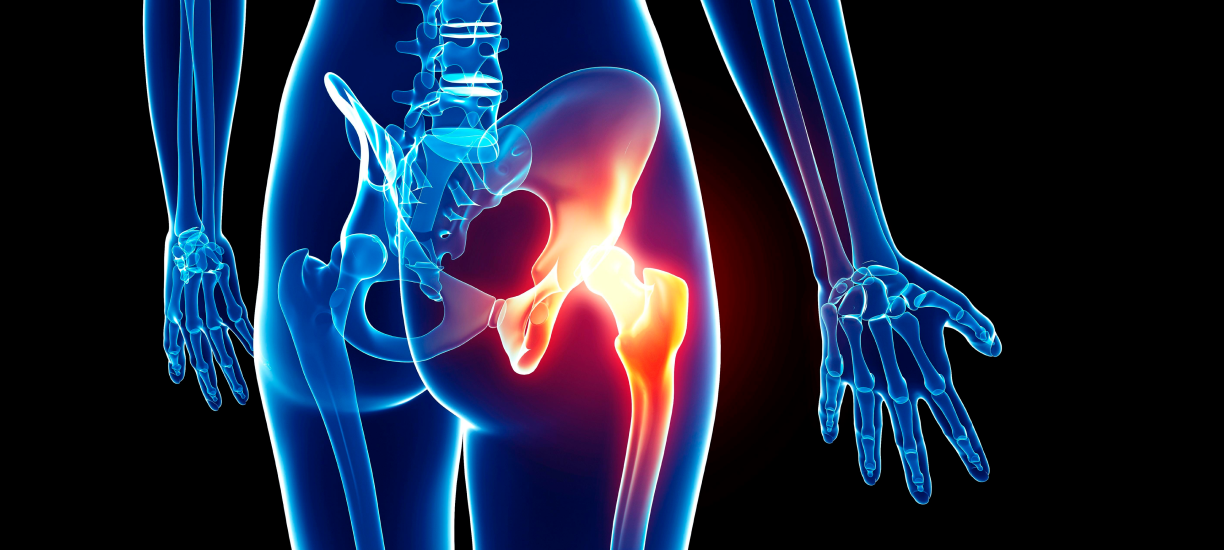Hip Replacement
If You Need Any Help Contact With Us
+91 98713 30000
Hip Replacement
Comprehensive Guide to Hip Health and Replacement
The hip joint is essential for movement, stability, and weight-bearing activities. It is a ball-and-socket structure comprising the acetabulum (hip socket) and the femoral head (the rounded top of the thigh bone). A protective layer of cartilage enables fluid movement and absorbs impact.
Over time, conditions like osteoarthritis can degrade this cartilage, leading to direct bone contact, resulting in pain, stiffness, and mobility issues.
Signs of Hip Osteoarthritis
- Aching pain in the groin, thigh, or buttocks, sometimes extending to the knee
- Stiffness that restricts movement
- Tenderness and inflammation around the joint
- Limited mobility, making daily activities challenging
- Pain worsening with movement or prolonged activity
Hip Replacement Techniques at Joints Health India
Cemented Hip Replacement – A surgical approach using special bone cement to fix the implant securely within the femur for immediate stability and support.
Uncemented Hip Replacement – This method relies on a porous implant surface that fosters natural bone growth, allowing for long-term fixation without the use of bone cement.
Innovative Hip Replacement Solutions by Dr. Rajeev Sharma
Dr. Rajeev Sharma integrates cutting-edge techniques, including Minimally Invasive Procedures, Robotics, and Augmented Reality, to enhance precision and recovery. His advanced approach offers:
- Muscle-Sparing Techniques to reduce trauma and enhance recovery
- High-Performance Implants designed for greater flexibility and longevity
- Rapid Recovery Protocols, allowing patients to walk within hours after surgery
- Stitch-Free Surgery for better cosmetic and functional outcomes
- Enhanced Pain Management, reducing discomfort and dependence on painkillers
- Fast Track Rehabilitation, enabling a quicker return to daily activities
Preparing for Hip Surgery
Undergoing a hip replacement requires careful planning to ensure the best possible results. Key pre-operative steps include:
- Choosing an Experienced Surgeon: Opt for a specialist with a strong track record in hip replacements.
- Medical Evaluations: Comprehensive assessments and tests ensure optimal fitness for surgery.
- Medication Adjustments: Certain medications, such as blood thinners, may need to be paused before surgery.
- Home Preparation: Setting up assistive devices and rearranging the home environment can facilitate smoother recovery.
Recovery After Hip Surgery
Thanks to modern medical advancements, recovery from hip replacement has become more streamlined:
- Early Mobility: Patients are encouraged to stand and walk within a few hours post-surgery.
- Physical Therapy and Rehabilitation: A guided exercise program helps restore strength and flexibility.
- Gradual Resumption of Activities: Within three months, most individuals return to normal low-impact activities, while complete recovery may take six months.
Potential Risks and How We Mitigate Them
While hip replacement is a highly successful procedure, some risks include:
- Blood clot formation
- Infection risks
- Implant dislocation
- Long-term wear or loosening of the implant
- Leg length discrepancies
Dr. Rajeev Sharma employs state-of-the-art surgical methods and risk prevention techniques to ensure the best patient outcomes.
Lifespan of a Hip Implant
The longevity of a hip implant is influenced by various factors:
- Advanced Materials: Modern implants, including ceramic and oxidized zirconium, offer increased durability.
- Lifestyle Factors: High-impact activities may accelerate implant wear, while a balanced lifestyle extends longevity.
- Surgical Precision: Proper alignment and positioning are crucial for long-term success.
Most hip replacements last 20 to 25 years, with many lasting a lifetime, especially in older patients.
Success Rate of Hip Replacement Surgery
Hip replacement surgery has a success rate of over 95%, with most patients experiencing significant pain relief and improved mobility. At Joints India, Dr. Rajeev Sharma’s expertise ensures optimal outcomes, enabling patients to regain an active lifestyle with confidence.
Are There Alternatives to Hip Replacement?
Yes, before recommending surgery, Joints Health India prioritizes non-surgical treatments, including:
- Lifestyle modifications (weight management and activity adjustments)
- Customized physical therapy and exercise regimens
- Pain management through medications and injections
Surgical intervention is only considered when conservative measures fail to provide adequate relief.
Why Choose Joints India for Hip Replacement Surgery?
Dr. Rajeev Sharma and Joints India are recognized leaders in joint replacement surgery due to:
- Expert Leadership: Dr. Sharma’s extensive experience in hip replacements sets a high standard of care.
- Super-Specialized Approach: A dedicated team of orthopedic experts focusing solely on joint health.
- State-of-the-Art Facilities: Equipped with the latest advancements in robotic and minimally invasive surgery.
- Innovative Surgical Techniques: Incorporating muscle-sparing approaches for faster recovery and better outcomes.
- Personalized Patient Care: Every treatment plan is tailored to individual needs for the best possible recovery.
At Joints India, we are committed to delivering world-class orthopedic care, ensuring that our patients regain mobility, independence, and quality of life through the most advanced hip replacement solutions available today.
